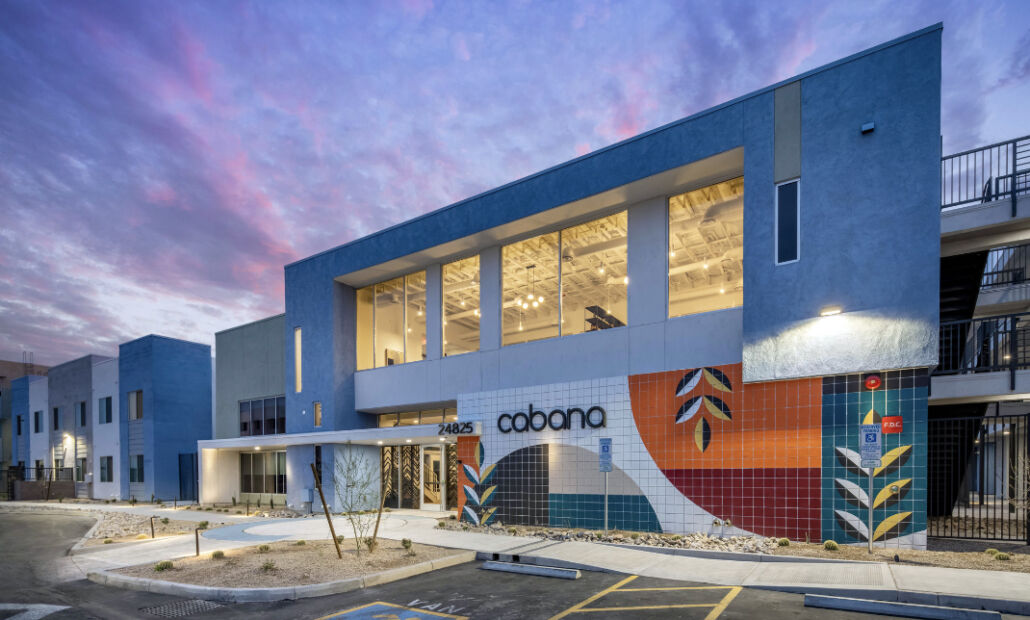Baicells deploys private LTE network in Arizona
- May 9, 2023
- Steve Rogerson

LTE and 5G provider Baicells Technologies collaborated with networking partners Cellocity, Alef Edge and LittleBird to define and deploy a private LTE for a residential rental community in Phoenix, Arizona.
Often, many properties are designed and constructed with network connectivity as an afterthought leading to a mismatch between need and ability, and increasingly connectivity is utility-like, and more devices across the home or business require this critical utility to operate.
Retrofitting venues with fixed wired facilities is often expensive and slow, or relying on legacy approaches such as wifi can come with clear risks and drawbacks, but alternatives such as private LTE and 5G can address these issues while adding benefits.
Leveraging CBRS spectrum, the team built and deployed a turnkey private wireless (cellular) network at Cabana Happy Valley, a residential complex of 292 apartments and community spaces in Phoenix, Arizona. It went on air in February and is said to show that cellular connectivity is no longer the exclusive domain of wireless network operators.
The turnkey offering has several elements comprising LTE radios from Baicells, a managed core from Cellocity, hosted edge from Alef Edge, and the IoT application ecosystem from LittleBird. Vall Technologies bundled the elements and deployed a turnkey offering making it easy for the complex.
“LittleBird at Cabana Happy Valley project required a partner ecosystem that was committed to excellence and to meeting customers’ RoI requirements in a multi-tenant residential environment,” said Jim Jacobellis, SVP at Alef. “Bringing in Baicells for radio layer, Cellocity for the managed services, and Vall for installation and engineering proved to be the perfect recipe for collaboration and a streamlined successful launch of Alef’s private mobile network service.”
The property’s private LTE network can be scaled to accommodate more connected devices when required and has the performance to introduce use cases such as video monitoring, digital signage, smart lighting and automation. This type of wireless network model proved to be more economical, both in time and cost, than extending fixed wired facilities to each of the apartments across the complex. And even with all this capability and performance in the network, the underlying economics were afforded as part of the tenant’s monthly rent.
“In the few short years since the commercialisation of CBRS to build private wireless networks, the ecosystem has taken giant steps in evolving from nascent experimental pilot projects to full deployments anchored by myriad use cases and clear techno-business value propositions,” said Mike Bradley, market development manager for Cellocity. “The importance of partnerships will continue to be paramount to drive the widespread adoption of private wireless networks by the market.”
This template is already being rolled out at other residential properties across the Phoenix metro area and beyond.
Baicells, founded in China in 2014 but now based in Texas, is a provider of LTE and 5G network services. With commercial deployments across more than 50 countries, offices on five continents, and engineering awarded 300 patents, Baicells has more than 700 private LTE deployments in operation, including a significant presence across North America.





